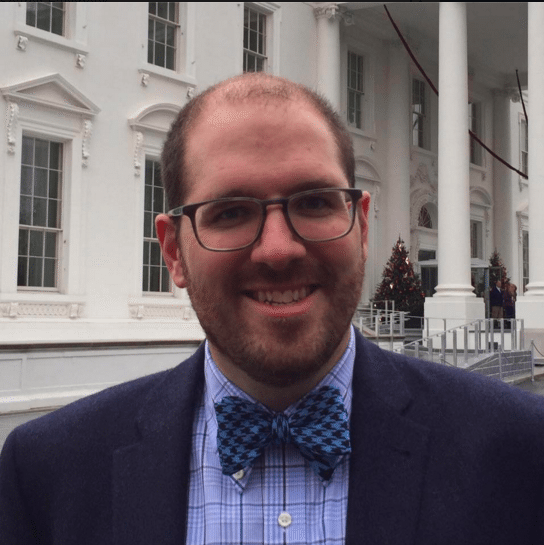Smaller local nonprofits are starting to see a portion of the $641 million the City of Baltimore received as part of the 2021 American Rescue Plan Act (ARPA). 120 organizations that experienced negative financial impacts during the COVID-19 pandemic’s peak received funding, totaling $3.4 million, through the City and the Baltimore Civic Fund’s Nonprofit Relief Fund.
This funding was akin to that disbursed for small businesses through the Paycheck Protection Program, or the Howard County Economic Development Authority’s HoCo RISE grant program, in that it focused on use for costs concerning COVID-impacted budget areas and targeted small organizations with 20 or fewer employees. Each grant was worth up to $50,000 and could vary from $5,000 to $25,000 and above, with no set minimum announced — only the aforementioned $50,000 max.
Technical.ly reached out to several local recipient nonprofits centered around digital equity and supporting small businesses. Four of these organizations’ leaders offered their insight on the impact of these ARPA funds for their respective entities, as well as the broader impact this funding has on nonprofits in Baltimore.
Michelle Geiss, cofounder and executive director of Impact Hub Baltimore
We are thrilled to be awarded $45,000 from the Baltimore Civic Fund via their Nonprofit Relief Fund.
For Impact Hub, this grant enables us to cover operational expenses and budget gaps that emerged because of the pandemic. As a nonprofit social enterprise, we relied on earned revenue from coworking, private offices and event bookings to cover nearly 100% of our core operating costs. The pandemic immediately shifted how people come together in our space, and that has had a long-term impact on our financial health. This relief grant allows us to pay new operational staff and keep supporting our entrepreneurial community through affordable space.
Many of the initiatives receiving these funds will cover unexpected gaps and ensure continuous support of the constituencies they serve. Over each phase of the pandemic, nonprofit leaders have been up against unprecedented challenges and sources of relief have been sporadic. It’s vital to keep support flowing to organizations who have been there for families, young people, neighborhoods and communities. Practically, people need to keep the lights on. On a more existential level, these grants honor the hard work that a lot of dedicated leaders and frontline staff have been putting in to keep going against all odds.

Andrew Coy. (Courtesy photo)
Andrew Coy, executive director of the Digital Harbor Foundation
As a result of the pandemic, Baltimore saw many youth programs come to a screeching halt. Some pivoted to virtual offerings, while others closed their doors due to lack of funding and resources. The sad reality is: Many youth programs across the city lost their momentum and connectedness with our communities, and are now just beginning to rebuild their staff capacity and program offerings in order to serve youth in person again. The costs associated with staffing shortages, operational needs and reconnecting with youth and families cannot be overstated. These funds help jumpstart efforts to strengthen youth programs for some, while serving as a bridge to obtain more sustainable funding for others.
These funds provide us with needed flexibility to [revise] what our learning space is and can be in a post-COVID world. With a variety of ways we can now reach youth and community, we are thinking outside the box about what role out-of-school-time learning spaces fill, and how we here at the Tech Center can play our part in the broader community.

Tyde-Courtney Edwards. (Courtesy photo)
Tyde-Courtney Edwards, founder of Ballet After Dark
We were awarded $5,000 but the impact is significant nonetheless. We’ve been working tirelessly over the years to grow into a space of understanding how to access funding to make our resources available on a wider scale. This award means our organization is being recognized for sacrifices and efforts [that were] made to contribute to Baltimore’s efforts of being known for hope, happiness and healing. While it may not be the largest award, it’s still going to allow for us to build capacity and offer scholarships to girls in need.
Tonee Lawson, executive director of The Be. Org
Baltimore nonprofits, like many organizations across the country, stepped up to fill the gaps in services for the community throughout the pandemic. COVID exacerbated many chronic socioeconomic issues for our most vulnerable citizens, like food and healthcare access, housing and education. Receiving the grant funding will allow Baltimore nonprofits to be reimbursed for their efforts and replenish organizations’ budgets to allow them to continue doing great work.
For The Be. Org, receiving this $25,000 will help provide programming to help students with the learning losses and social-emotional challenges experienced during virtual learning and the pandemic. Funding will allow us to hire and pay more teachers to meet the needs of our students and community.
Donte Kirby is a 2020-2022 corps member for Report for America, an initiative of The Groundtruth Project that pairs young journalists with local newsrooms. This position is supported by the Robert W. Deutsch Foundation.Before you go...
Please consider supporting Technical.ly to keep our independent journalism strong. Unlike most business-focused media outlets, we don’t have a paywall. Instead, we count on your personal and organizational support.
Join our growing Slack community
Join 5,000 tech professionals and entrepreneurs in our community Slack today!





